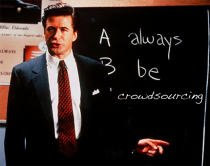APEC Works on Innovation Policies for the Digital Era
|
SAN FRANCISCO, CALIFORNIA –Â High-level policy discussions on innovation and trade in communications and technology sectors continued Tuesday among the 21 member economies of Asia-Pacific Economic Cooperation (APEC). Â The discussions focused on the elements needed to create a thriving innovation ecosystem, particularly the balance between implementing institutional policies and encouraging entrepreneurial initiatives. Delegates from member economies and private sector executives discussed fostering an innovative culture in a global economy that is increasingly shifting from the manufacturing of goods to services and knowledge-based processes. Â Representatives from states like Singapore repeatedly emphasized the growing importance of human capital and the need to provide the right platform for growth through cross-industry innovations. “Innovation is successful only if a number of things are right, not just policy. Looking at things like business environment, infrastructure, the competency of technology and policy — it really is a holistic view,” said Dr. Sarah Muttitt, chief information officer of Singapore’s Ministry of Health Holdings. However, delegates also cautioned against government over-regulation, particularly after the initial phases of a venture. Companies were unwilling to see the government actively engaged in directing where innovation should go because it lacked the knowledge of markets and could not help them achieve success, said Alexey Sitnikov, director of international development with the Skolkovo Foundation. The foundation is an initiative of Russian President Dmitry Medvedev to create a new science and technology city in the Moscow suburb of Skolkovo. On the infrastructure front, cloud computing remained many governments’ key initiative in transforming critical sectors like healthcare and education, providing them with opportunities to share and access large datasets to identify pivotal trends. “I think one of the biggest things the healthcare world is going to see in the next decade is people using large, large datasets to understand use and frequency patterns,” said Dr. Robert Atkinson, president of the Washington D.C.-based Information Technology and Innovation Foundation. Â Atkinson used cancer statistics gathered by the U.S. National Institutes of Health as an example of the possibilities that would come with the ability to examine data across 21 markets. In regard to the benefits of cloud computing for consumers, Ambassador Philip Verveer, the U.S. Coordinator for International Communications and Information Policy, said: “You don’t get a lot of employment, but you do get the opportunity for small and medium enterprises.” However, policymakers expressed concerns about security and privacy challenges that went with the migration of data from a physical location to a virtual database. Â Especially when shifting sensitive information like healthcare records, governments needed to ensure protection of the integrity of personal data, representatives said. The conference concluded with closing remarks from Alberto Savoia, Google’s chief innovation agitator, who cited patent legislation as the single highest barrier to innovation. Â Savoia also encouraged the representatives to see innovation as a process of trial and error. Representatives from both private and public sectors will have opportunities to reconvene at November’s APEC Economic Leaders’ Meeting, the largest forum of this kind to group policymakers and business leaders. Similar topics will be covered, such as the workforce of the 21st century and the ability to deal with disruptive technological changes. “The whole idea is that people can meet each other and interact with each other,” said Michael Michalak, former U.S. ambassador to Vietnam, a member of the APEC 2011 USA Host Committee and a key organizer of the CEO Summit. as reported in Xinhua News |


